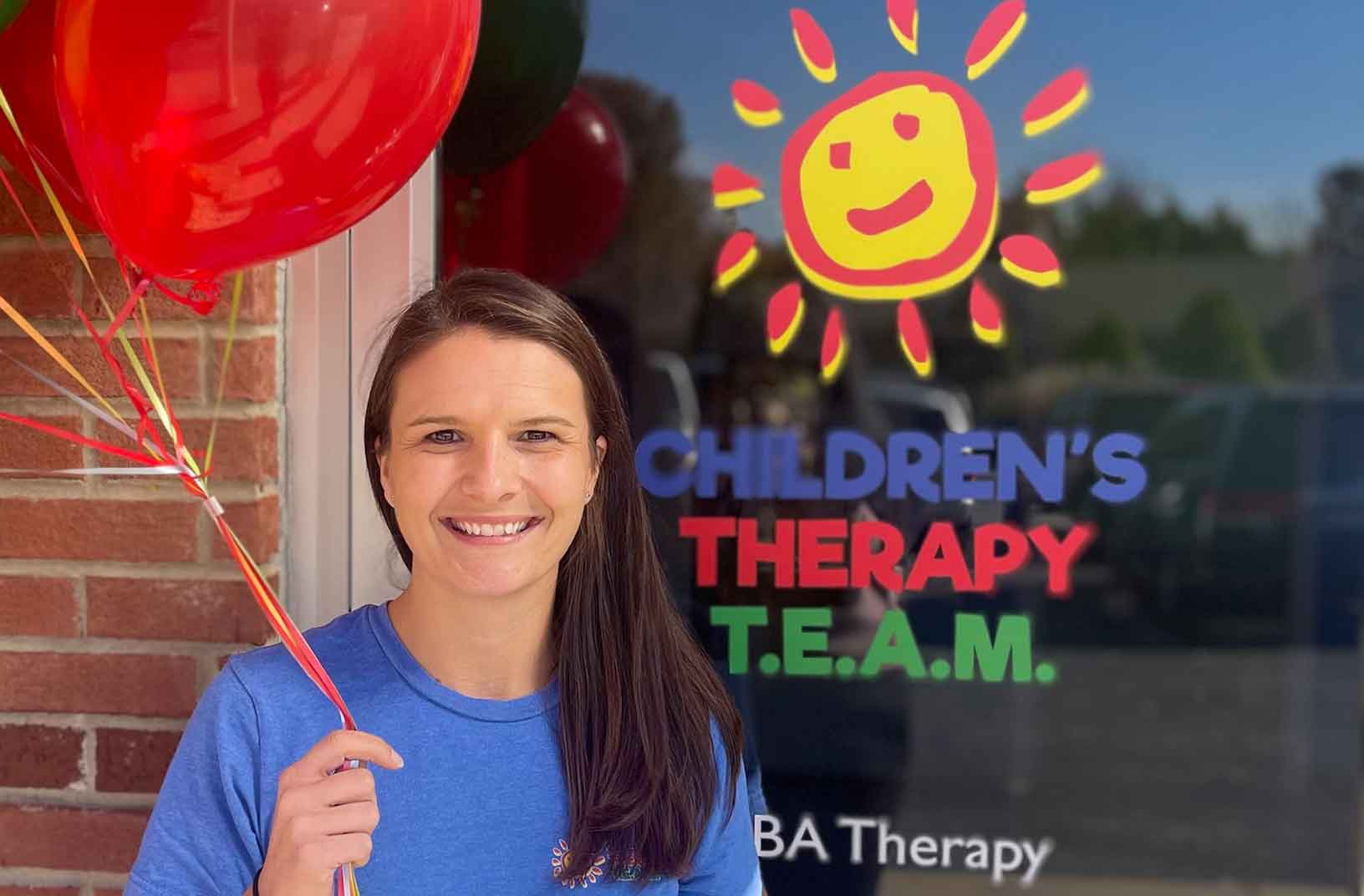

Celebrating a well-earned achievement, Paige Funkhouser, M.S., CCC-SLP, CALT, takes aim at dyslexia treatment.
Already a veteran speech-language pathologist with 13 years of experience in the field, Paige recently added a new “CALT” credential to her name. She is now a Certified Academic Language Therapist. She joins Stephanie Hicks, CCC-SLP, CALT, as the second such credentialed therapist at Children’s Therapy TEAM. Together they have expanded the dyslexia treatment services available for families.
One client’s reading struggles ignited Paige’s interest in the field of dyslexia treatment. She dove into learning all she could about different approaches to helping children with reading, writing, and spelling difficulties. Her research soon became a passion, and she enrolled in a course designed by the Luke Waites Center for Dyslexia & Learning Disorders.
Paige worked closely with David Hanson, M.Ed., CALT, a local leader in the field of dyslexia treatment, to complete a two-year training. During the training she dove into coursework and CALT exam preparations, and she completed the 700 academic language clinical hours required for certification. Through her practicum, she graduated several children who progressed to be able to read at grade-level. For Paige, seeing this achievement was validation of her commitment to becoming a CALT.
A common misconception Paige has observed is the idea that dyslexia can’t be diagnosed until 3rd grade. She said this simply isn’t true. When children with dyslexia begin elementary school, difficulties with reading can be very apparent by age 5 or 6 years.
It can be heartbreaking to see children who have struggled for many years with undiagnosed dyslexia. Paige shares that it is common to see undiagnosed children develop many coping strategies which can make identification difficult in school settings. She recalls working with older high school students who flourished after finally being diagnosed and receiving proper treatment.
Paige points out that sometimes, in addition to dyslexia, a child may also have other speech-language disorders that are either impacting or are impacted by the dyslexia. Because of Paige’s training as both a speech-language pathologist and an academic language therapist, she offers a broader scope of treatment to better serve children with multiple language disorders.
